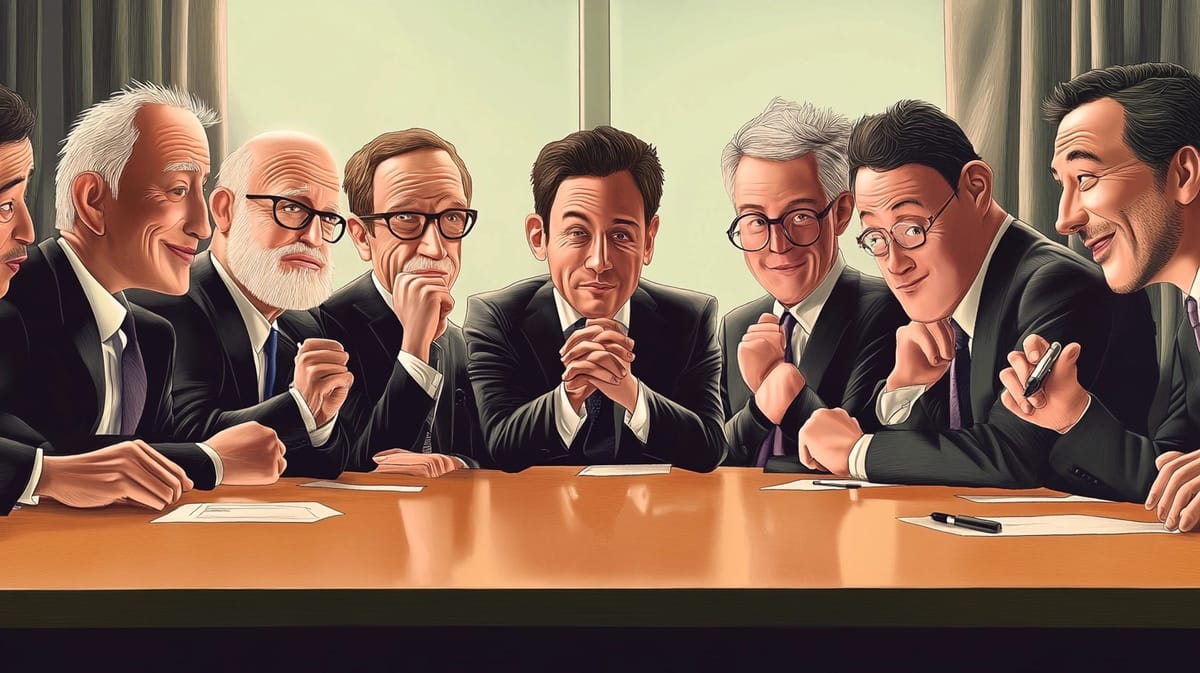The AI Boys' Club is Coming for Marketing
Women fought for decades to lead in marketing. But will the AI revolution erase their hard-earned gains?

For years, marketing has stood apart from other industries. While tech, finance, engineering, and other sectors remain male-dominated, marketing is a space where women thrive. Where they don’t just have a seat at the table—they are often at the head. Women have climbed the ranks to hold 60% of marketing jobs in North America and more than half of Fortune 500 CMO roles. Beyond mere representation, women in marketing are steadily chipping away at the glass ceiling, transforming the field into one of the most gender-inclusive.
But the ground is shifting. As AI sweeps through the industry, there’s a sense that all bets are off. Because this isn’t just another tool—AI is reshaping marketing from top to bottom. And there’s no denying that this massive technology wave has been dominated by men.
The AI Power Shift
The marketing transformation is well underway. Every campaign, every customer journey, every creative decision is increasingly guided by machine learning, predictive analytics, and automation. AI determines which ads you see, which emails land in your inbox, and which products are recommended to you.
The problem? AI isn’t neutral. It doesn’t exist in a vacuum. AI is a reflection of its training data, its creators, and the world we live in.
Men have historically led AI development, holding the majority of research, funding, and leadership positions. They lead AI research, monopolize funding, shape public discourse, and hold the majority of AI leadership roles. Women hold only 22-30% of AI-related jobs, and in machine learning research, that number is as low as 12%. Look at the major voices driving AI’s future—Sam Altman, Elon Musk, Jensen Huang, Demis Hassabis, Dario Amodei, Yann LeCun, Andrej Karpathy, Ilya Sutskever, Mark Zuckerberg.
When was the last time you saw a headline featuring a female leader in AI?
The Invisible Bias
AI isn’t just changing marketing strategies—it’s reshaping career trajectories and redefining success in the field. And if left unchecked, it will reinforce the same biases that have sidelined women in other industries.
We’ve already seen AI-driven hiring systems favor male candidates. AI-generated creative often defaults to male-oriented perspectives. Job performance analytics, trained on past data, risk prioritizing traditionally male leadership traits while undervaluing the skills that women bring to marketing.
And because AI learns from historical patterns, it’s likely to perpetuate them. If past marketing decision makers were mostly men, if high-performing campaigns were disproportionately male-led, AI will continue to optimize for those patterns—edging women out of the next generation of leadership.
The Technical Divide
Marketing used to be a blend of creativity, strategy, and intuition. But today, it’s becoming deeply technical. AI-powered automation, predictive analytics, and data science are among the most prized skills.
Women are underrepresented in technical areas across the board. While they have strong representation in creative and strategic marketing roles, they hold fewer positions in data science, AI engineering, and MarTech—the very areas that are shaping the industry’s future. It's no surprise, as the U.S. tech sector is only 35% female, with women holding just 26% of data and analytics jobs. In the UK, women comprised about 1 in 5 tech professionals in 2022. And in many emerging tech hubs or developing countries, female representation in tech jobs hovers between 10% and 30%.
As marketing continues its shift toward an AI-driven, data-centric discipline, the industry must ensure equitable access to AI literacy and technical training for women. Mastering AI tools, leveraging marketing data, and shaping the very technology that fuels modern campaigns will be critical to maintaining their hard-earned leadership in the industry.
The Bright Spot
Interestingly, one area where women have gained traction in AI is ethics—a crucial but often secondary part of the conversation. Women make up a significant share of AI ethics researchers and policymakers, with studies showing that women are more likely to enter AI ethics roles compared to core AI development.
Despite this, AI ethics remains underfunded and underrepresented within the broader AI industry, limiting its influence in shaping AI’s future direction. Prominent figures like Timnit Gebru, Joy Buolamwini, and Fei-Fei Li have been at the forefront of addressing AI bias and advocating for inclusive AI policies. However, despite these contributions, AI ethics is often perceived as a brake pedal in an industry obsessed with acceleration—while leaderboards, market share, and male-dominated news feeds are the barometer of success, ethical concerns are treated as afterthoughts, rather than essential guardrails.
This matters for marketing because ethical AI is not just about society—it’s about business. As brands integrate AI deeper into their marketing strategies, they face ethical, legal, and reputational risks. Biased AI-driven campaigns can alienate consumers. Algorithmic decision-making can trigger backlash. And brands that deploy AI irresponsibly risk losing consumer trust in an era where authenticity is king.
The marketing industry must ensure that women's strong presence in AI ethics translates into leadership in responsible AI deployment. Marketers must ensure that AI is transparent, unbiased, and aligned with brand values—and women in marketing are well-positioned to lead this charge. By bridging AI ethics and marketing, women can play a crucial role in shaping how AI serves businesses and consumers alike.
The Crossroads
Marketing is at a turning point. AI will define its future—but humans will determine whether the industry continues its path toward gender equality or quietly reverses course.
The next generation of marketing leaders must not simply accept AI as an out-of-the-box technology. They must question it, shape it, and ensure it serves everyone. The industry cannot afford to let AI push underrepresented groups out of marketing’s future. Instead, we must all take deliberate action to ensure that diversity remains central to shaping what comes next.






